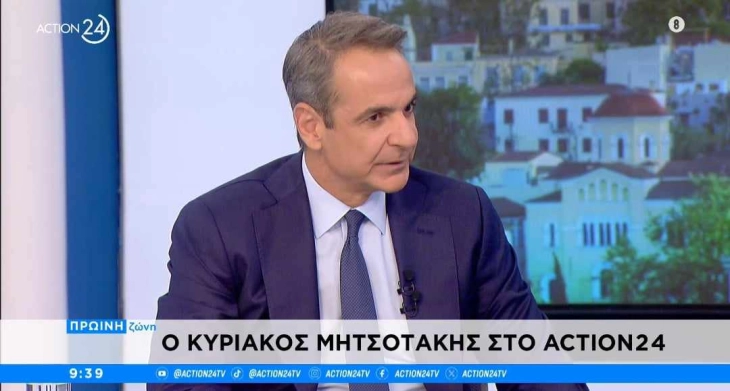In a TV appearance on Wednesday morning, Greece’s Prime Minister Kyriakos Mitsotakis reiterated his expectation that the Macedonian prime minister-designate would use the country’s new name, North Macedonia, both domestically and internationally in accordance with the Prespa Agreement. He noted that although the treaty includes a dispute resolution provision, he did not anticipate the need to enforce it, as reported by MIA’s Athens correspondent.
During an interview with Greek Action 24 TV, Mitsotakis emphasized that the Prespa Agreement clearly outlines the resolution process for any compliance issues. He expressed his belief that enforcement would likely be unnecessary, stating, “They may be realizing in Skopje that the election campaign period is over.”
Mitsotakis had previously voiced the same expectation in an interview with Star TV on Tuesday evening, affirming that the next prime minister-designate should use the name North Macedonia universally.
The New Democracy leader reiterated that his political party had opposed the name deal. However, he emphasized that the treaty is “absolutely clear” and would be respected “because it is an international agreement, which is above national law.”
“The Prespa Agreement contains a provision about the name. The name of the country is North Macedonia. It applies to everyone,” Mitsotakis stated.
He further elaborated, “What I expect from the new prime minister — who is still not the prime minister-designate but will be at some point — is a clear statement that the name of the country is North Macedonia and that he will use it both inside and outside the country.”
When asked if the name issue was bilateral or European, Mitsotakis responded, “It is a European issue now.”
He credited “successful Greek foreign policy, Greece’s reputation, and making a couple of phone calls” for the EU’s swift condemnation of North Macedonia’s new President’s refusal to use the constitutional name during the presidential oath of office.
“This is another proof that Greece is reckoned with,” Mitsotakis said. He highlighted the importance of the European elections, adding, “The voice of Greece is heard in Europe and should be heard even more clearly.”






Comments are closed for this post.